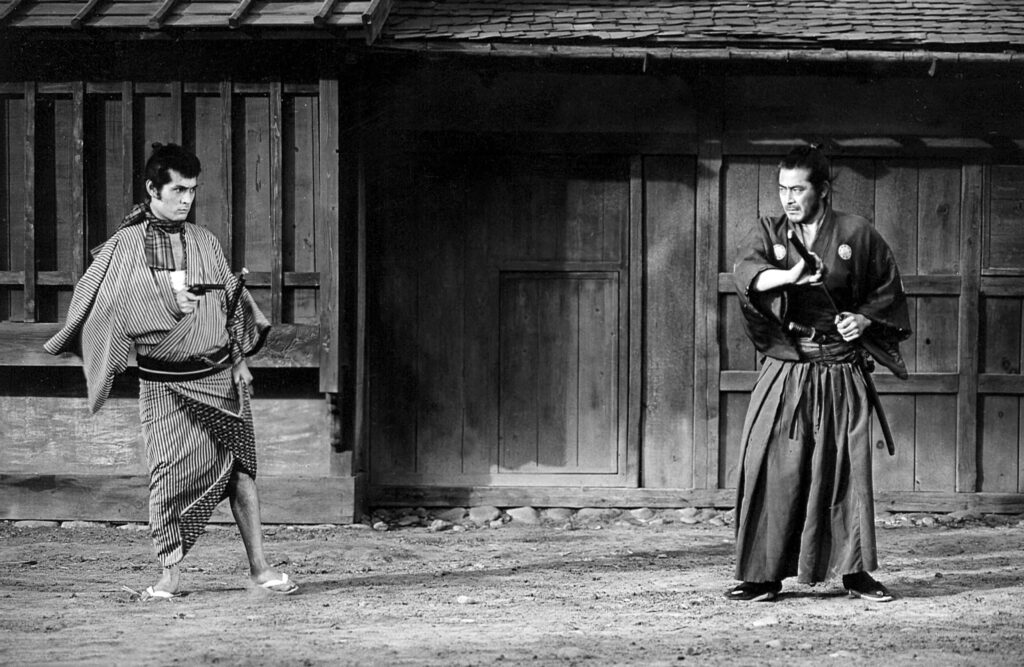Classic Film: Yojimbo
Written by Ian Thomas Malone, Posted in Blog, Movie Reviews, Pop Culture
Akira Kurosawa possessed an uncanny ability to make intimate settings feel like they carried the weight of the world. At its core, 1961’s Yojimbo is a small town political struggle, with two rival factions warring over the local gambling industry. Such a dispute hardly requires a substantive moral quandary to produce compelling drama, but Kurosawa keeps his eyes on the bigger picture, using his narrative to explore the rot of man.
The film follows an anonymous rōnin (Toshiro Mifune) who adopts the pseudonym “Kuwabatake Sanjuro” as he stops in a small town for a drink of water and a rest. Discovering the messy political scene between Seibei (Seizaburo Kawazu) and Ushitora (Kyū Sazanka), Sanjuro quickly proves his value in the conflict by killing several of Ushitora’s henchmen. Not content to be a mere hired gun, Sanjuro pits the factions against each other in an attempt to maximize his earnings.
Mifune’s broad range beautifully illustrates the complex morality Kurosawa spends his narrative grappling with, a moving exploration of society’s worst inclinations. Sanjuro has a certain charm to him, but both Kurosawa and Mifune are careful to ensure that the audience doesn’t become too enamored by his often amusing antics. Mifune is skilled at playing the opportunistic mercenary with a degree of depth that lets the trials of his tortured soul unfold in real-time.
Kurosawa crafts a wonderful aesthetic in his town, an eeriness enhanced by the chilling score. A once quiet village buckles under the weight of greed, the gambling industry serving as an apex predator disrupting its ecosystem. The town carries the intimacy of a stage play while exuding the strength of an epic, a generation of conflict coming to a head as a result of one wandering rōnin entering the fray.
Yojimbo is the kind of narrative designed to stick with its audience for a lifetime. Both Kurosawa and Mifune put Sanjuro through the ringer, an emotional whirlwind that few could expect throughout the first act. There are points in the third act where it feels like the film is finally buckling under its exorbitant weight, and rather long 110-minute runtime, but the payoff hits its mark in a way that makes you want to rewind and start the whole thing over again.
To American viewers, Yojimbo may best be remembered as the inspiration for Sergio Leone’s A Fistful of Dollars, an unofficial remake that resulted in a successful lawsuit by Yojimbo’s production company, Toho. Both Leone and Clint Eastwood see their fine work pale in comparison to Kurosawa and Mifune’s grasp of the material, including their dark comedic take on the messy morality at hand. Yojimbo carries great appeal for fans of Westerns to see firsthand how much Kurosawa directly influenced the entire genre.
For those who think of the “man with no name” as a kind of stock character, Mifune offers strong contradicting evidence. Though we never learn Sanjuro’s real name, Mifune gives the audience a deeper sense of intimacy through his performance. Kurosawa puts forth some of his best work in this fascinating samurai narrative.











